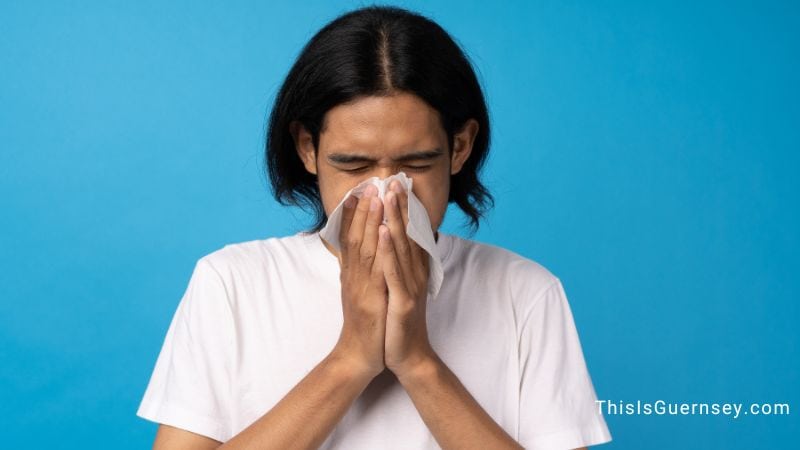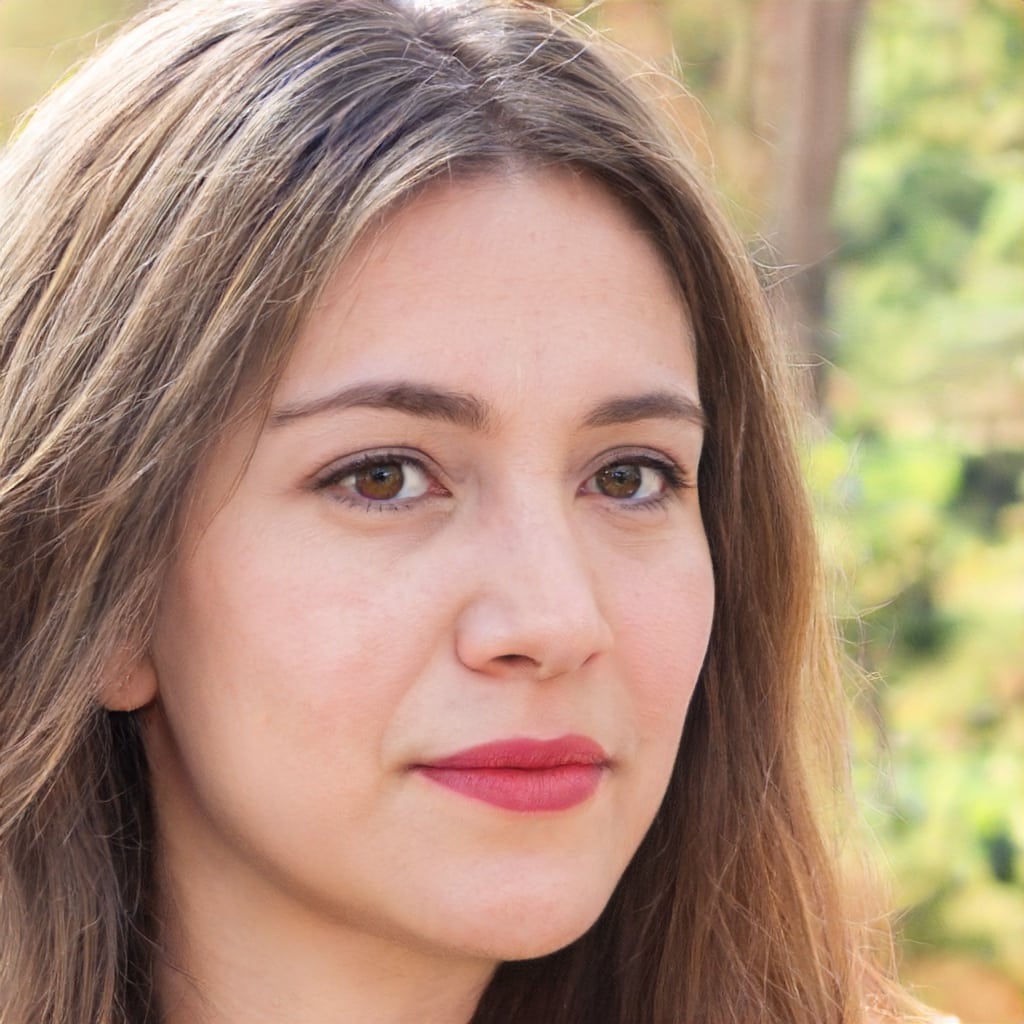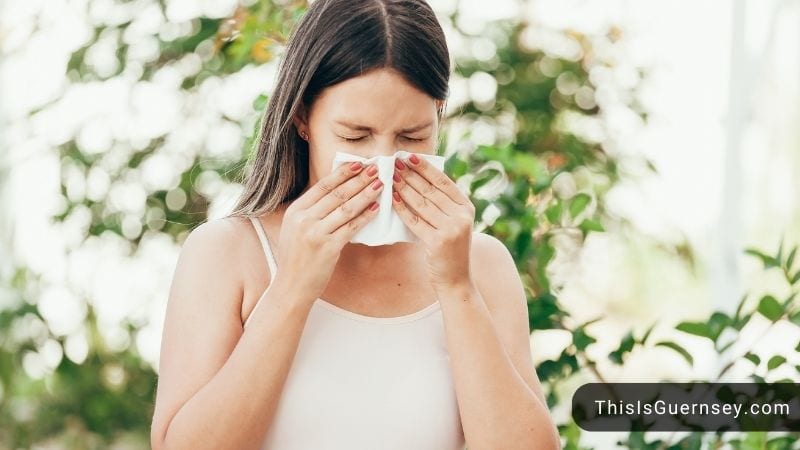Have you ever blown your nose and heard a loud “pop” or “squeak” coming from your ear? And the question you think of at that time would be “why when I blow my nose my ear squeaks and hurts?”
If you have the same issue and are looking for the answer, this post will help you. In particular, this article will explain what causes your ear to make noise when you blow your nose and what to do when this happens.
Why When I Blow My Nose My Ear Squeaks And Hurts?
The reason why your ears squeak and sometimes hurt when blowing your nose is related to the air pressure caused to the eardrum.
Our ears and throat are connected by the eustachian tube, which goes from the middle ear to the back of the throat. When you forcefully blow your nose, the air from your lungs goes through your throat and rises in the eustachian tube to fill the space in your middle ear and normally causes the eardrum to balloon outward, making the squeaking sound.
Particularly, eustachian tubes open up when your ears pop to equalize middle ear pressure with outside pressure. Blowing your nose hard or blowing both nostrils at once changes the air pressure gradient between your middle ear and the atmosphere. When the air pressure increases, your tympanic membranes (eardrums) are moved, creating squeaky noises in your ears. Normally, it has nothing to do with a perforated ear drum.
The squeaky noise in your ears is the sign showing that you blew your nose with too much force. Moreover, if you suddenly blow your nose too hard or blow with both nostrils at the same time, you can even make your ears hurt.
Thus, don’t blow your nose too hard, and pinch one nostril gently while clearing the other, then switch nostrils. It causes less pressure on the ear, so you can avoid hurting or damaging your ears.

What to do when I blow my nose, my ear squeaks?
When you blow your nose, your ear squeaks because of the high pressure rising in your middle ear that makes your eardrum popping. So, you can decrease the squeaky noise by reducing the air pressure on the ear.
Instead of forcefully blowing your nose into the handkerchief or tissue paper, you can place the tip of your nose in a bowl of warm salty water while standing over a washbasin and gently sniff the water up into your nostrils. Then, gently press each side of your nose and blow through the other nostril to allow the water and mucous to drain into the washbasin.
Can I damage my ear by blowing your nose?
Yes, you can hurt and even damage your ears when blowing your nose too hard. Forcefully blowing the nose can cause tinnitus and perforated eardrums.
When you blow your ear strongly, you force the air from the nose to the ears with pressure beyond the normal level. The eardrum is a very thin and sensitive organ. Forceful pressure can make your eardrum hurt and perforated.
Can plugging your nose and blowing hurt your ears?
Yes, it can hurt your ears if the pressure is too strong.
The most common method of popping your ears is to hold your nose and blow out, but excessive pressure can blow out the eardrum. So, never sneeze while plugging your ears, as this puts far too much pressure on the ears.
Why do my sinuses squeak when I blow my nose?
Your sinuses squeak because they are clogged by congestion. When your sinus cavities have excessive mucous and fluids, it causes the air to be trapped, creating a squeaky noise when you blow your nose.
So, to reduce the squeaking sinuses effect, you should stay hydrated. Besides, try to improve your diet with vitamins and minerals by adding vegetables and some fruits. Doing exercises is also a good way to help open up the airways.
On the other hand, if you have any allergic history or your nose bone is not straight, you should go to the doctor for a more accurate diagnosis and proper treatment.
Can Covid 19 Affect Your Ears And Nose?
The answer is that Covid 19 may affect your ears and nose.
We’ve known that COVID-19 causes ear, nose, and throat (ENT) problems in positive patients, such as sore throat, nasal obstruction, and congestion. And as it causes nose inflammation, it may also lead to inflammation in the Eustachian tube that connects the nose and middle ear. This may result in middle ear congestion and temporary hearing loss.
Besides, Covid 19 also stimulates the development of other diseases, so if the patient has symptoms of an ear infection before, the infection would quickly attack the inner ear.
There were reports showing that the prevalence of hearing loss and tinnitus in Covid-19-positive patients is 7.6% and 14.8%, respectively. Forbes reported a research paper demonstrating “a strong proof of principle, suggesting that infection of, and subsequent damage to, the hair cells of the inner ear may be behind the hearing and balance issues reported by some Covid-19 patients.” However, more research on the effect of COVID-19 on the ENT of the patient needs to be conducted.
FAQs
Why is there a whistling sound in my ear?
When you hear a whistling sound in your ear, you may have tinnitus.
Tinnitus is often called “ringing in the ears” and often happens when there is no outside sound source. The sounds you hear in your ears may be similar to the sounds of blowing, roaring, buzzing, hissing, humming, whistling, or sizzling.
What does it mean when you blow your nose and your ear squeaks?
When you hear a squeaky noise in your ear when blowing your nose, it means you blew your nose too hard.
Blowing your nose too hard would hurt your ear because the pressure on your middle eardrum is too high. Thus, do not force yourself to blow your nose hard even if you feel that the blowing is not strong enough to pull out the fluid buildup.
How do you know if you burst your eardrum?
When you burst your eardrum, it means that your eardrum is ruptured. There are several symptoms and indicators of an eardrum rupture, including a sudden increase or decrease in pain, bloody discharge from the ear with pus, hearing loss, tinnitus, vertigo or a spinning sensation, nausea, and vomiting caused by vertigo.
Can sinuses make noise?
Yes, sinuses can make noises if you have nasal congestion.
When you get a cold, your runny nose often creates whistling sounds. You can also hear the clicking sound in your sinuses. This is because the excessive mucous and fluids build up in your sinus cavities and trap the air.
References:
- https://www.houstonent.com/blog/tympanic-membrane-perforation-symptoms-causes-and-treatment-options
- https://www.vinmec.com/en/news/health-news/general-health-check/can-blowing-your-nose-strongly-cause-a-perforation-of-the-eardrum/
- https://www.uhhospitals.org/Healthy-at-UH/articles/2022/03/can-covid-19-cause-hearing-loss

I’m Renee L. Bazile, and I’m passionate about health and fitness. Keeping fit and active has always been a passion of mine.
I graduated from Nova Southeastern University with a degree in Exercise Science. I believe being healthy and fit is the key to a happy and successful life.
Over the past ten years, I have trained more than 10.000 clients in the fitness industry. My goal is to help others achieve their fitness goals. The saying goes, “If you don’t use it, you lose it.” Therefore, we all need to exercise regularly to maintain health and fitness.
In 2019, I became an expert on health & fitness topics for ThisIsGuernsey after starting my blog about health & fitness. I relax and rebalance my life by walking, fishing, and blogging in my free time.
